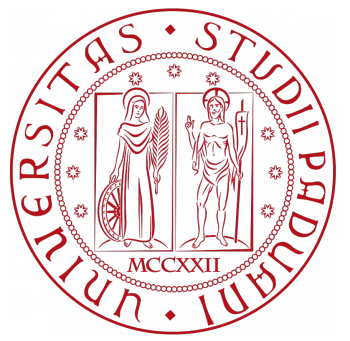Evolution and Medicine (1880-2000)
Fabio Zampieri
History of Medicine, Associate Professor
University of Padua
Department of Cardiac, Thoracic, Vascular Sciences and Public Health
Randolph Nesse
Director
Arizona State University (ASU)
Center for Evolution & Medicine (CEM)
Background, previous collaborations and state of the art
Evolutionary Medicine is an emerging discipline at the intersection of medicine, genomics, and
evolution. It uses modern evolutionary theory to understanding health and disease. Modern medical
research and practice have focused on the molecular and physiological mechanisms underlying health
and disease, while evolutionary medicine focuses on the question of why evolution has shaped these
mechanisms in ways that may leave us susceptible to disease. The evolutionary approach has driven
in the last years important advances in our understanding of cancer, autoimmune disease, and
anatomy. Medical schools have been slower to integrate evolutionary approaches because of
limitations on what can be added to existing medical curricula. However, some schools are opening
courses on evolutionary medicine, such as Yale and Harvard, and the Arizona State University (ASU)
inaugurated few years ago a Center for Evolution & Medicine (CEM).
The emergence of current evolutionary medicine has stimulated only few studies about possible
interactions between evolutionary biology and medicine during the past. These studies have shown
that since Charles Darwin’s time many doctors tried to integrate evolutionary concepts in their
researches, in particular during the period 1880-1940. However, they often used a simplistic version
of the theory of evolution which brought to misunderstandings and, in the worst cases, to political
and ideological uses of a racial typology of diseases.
Prof. Fabio Zampieri, the applicant of this project, devoted several studies on the history of
evolutionary medicine and he is considered the leading expert on this topic. He published a highly
quoted paper in the international journal “The Quarterly Review of Biology” (2009) and a book in
Italian on that issue (Parma 2006). He already collaborated with the Foreign Group Leader prof.
Randolph Nesse, in particular for reconstructing the current debate which brought to the foundation
of contemporary evolutionary medicine. Prof. Nesse, American psychiatrist and evolutionary
biologist, is the founder of the discipline and its leading figure at international level.
One of the main critics directed against evolutionary medicine is related to its lack of practical
applications. Can evolution-based understandings of health help with medical treatment? This is the
typical question that arises in current debate, and many doctors think that the answer is negative. An
English book, available to the international scientific community, on the history of evolution and
medicine could be crucial for a clear understanding of the theoretical basis of evolutionary medicine,
for clarifying the main concepts involved in the current debate and their possible applications in
medical treatment. Trying to understand questions, such as: Why are all members of the species
vulnerable to the disease? Why is the birth canal so narrow? Why can’t we evolve a way to avoid all
infections? Why is anxiety so common? can give researchers deeper insight into why the body is the
way it is and why natural selection did not make it less vulnerable to disease. While answers to such
questions do not guide clinical practice directly, broader thinking allows new research ideas and
development of better strategies for prevention and treatment.
Plan of activities: objectives, actions, methodology, timing and places of implementation
The part of the projected book related to the period 1880-1940 is yet at an advanced stage of
realization. This project will be focused on the part specifically related to the dawn and development
of current evolutionary medicine. The work will be carried out at the Center for Evolution & Medicine
of Arizona State University during two months of the second semester of 2019. During that period,
prof. Fabio Zampieri will studied the main texts of Evolutionary Medicine and make interviews with
the American scientists involved in that discipline, under the guide of prof. Randolph Nesse. He will
give also lectures and seminars to the CEM students on the history of evolutionary medicine.
Expected results, dissemination activities, deliverables and expected level of participation
The main result of this project will be the publication of a monograph in English on “Evolution and
Medicine” analyzed from an historical perspective. The publication will be done with an important
international publisher, such as the “Oxford University Press” which has already published some of
the most important scientific books on that new discipline.
A book on the whole history of evolutionary medicine, by promoting a better understanding of the
theoretical basis of current evolutionary medicine and the main concepts involved in the current
debate, could stimulate Western medical schools to introduce evolutionary thinking in medical
curricula. The presentation of the book will be done by organizing an international congress where
collecting some of the main scientists involved in evolutionary medical researches, as well as
historians of science specialized in Darwinism and modern medicine. To trace the fundamental
differences between ancient attempts of combining evolutionary theory and medicine, dating back to
the years between 1880 and 1940, and current evolutionary medicine, would be fundamental not only
for understanding the scientific basis of the current discipline, but also to avoid possible
misunderstandings or misuse of evolutionary concepts by physicians.
Development prospects and expected effects on the international scientific relationships of the
Italian group and of the other Institutions involved
Evolutionary medicine is actually a discipline more studied in USA than in Europe. This project
would like to favor a better knowledge of the discipline also at European and Italian level, in particular
by promoting new research projects in collaborations between USA scientific institutions, in
particular the CEM of ASU, and Italian medical schools, in particular that of Padua. The University
of Padua boasts a centenary tradition characterized by innovation and pioneering thinking:
introducing evolutionary medicine in Italy would represent an important opportunity to confirm this
tradition.

